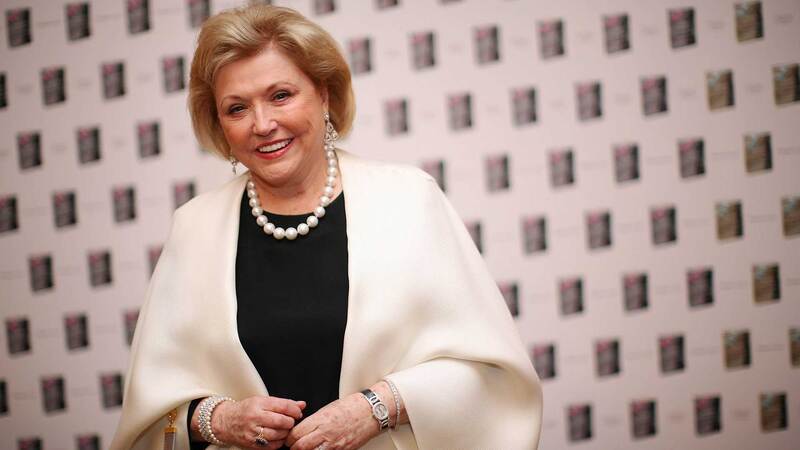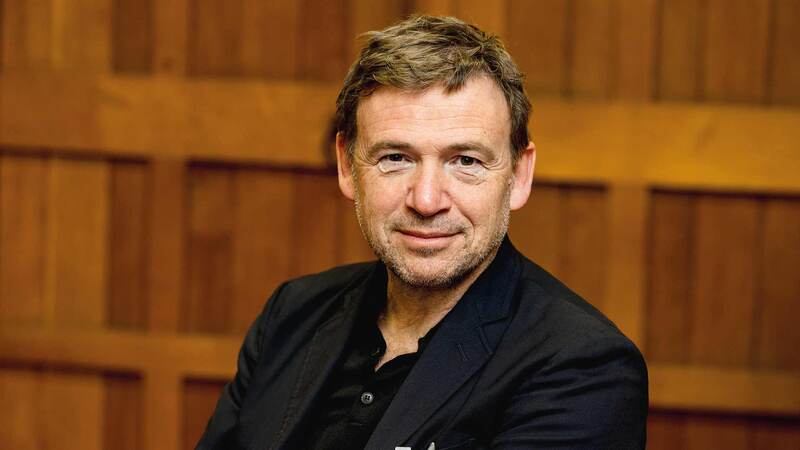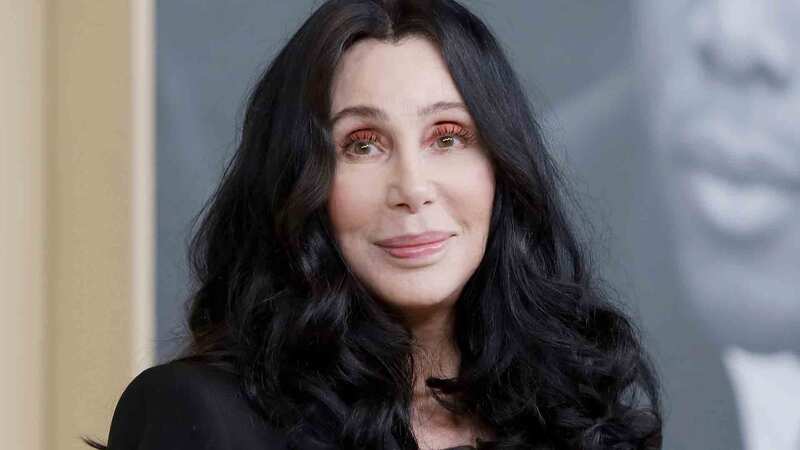You are viewing your 1 free article this month. Login to read more articles.
Trade gives approval to 'truly deserving' Booker winner Saunders
Trade figures have given George Saunders' Man Booker win their seal of approval, congratulating the prolific short story writer on his first full length novel, while others have said the prize is "bigger and better" following the expansion of the submission criteria four years ago.
Bloomsbury has confirmed the new print run for Lincoln in the Bardo will be 100,000 copies and Saunders' long-term editor, Alexandra Pringle, told The Bookseller she was "beside herself" with joy at his win. Retailers have hailed the prize's second consecutive American winner as "truly deserving", despite recent debates that opening the prize up to US writers would be to the detriment of British and Commonwealth authors. Chair of the judges Baroness Lola Young said the author's nationality "wasn’t an issue", and added that though there were "no fights, no blood on the carpet" during the judging, there was "great relief" about having made the decision and "some tears". She added: "We were very diligent and very thorough."
Retailers spoken to by The Bookseller were delighted. "I'm so pleased the prize has gone to Saunders, a truly deserving winner for his remarkable, experimental and moving novel, I loved it," said Frances Gertler, web editor at Foyles. "Although it means a second consecutive win for an American author, I don't think anyone would deny he is a worthy winner. He took a risk on many levels, on practically every level in fact, and pulled it off with aplomb. He's a huge favourite at Foyles and we're thrilled for him."
Chris White, fiction buyer at Waterstones, meanwhile called Lincoln in the Bardo, published by Bloomsbury, a "very worthy winner".
"I'm delighted," he said. "Innovative, warm and wise, Lincoln in the Bardo proffers a richly rewarding and hugely enjoyable reading experience. Booksellers have long been convinced of this novel's charms, and now it will find thousands of new readers, many of whom will, I'm sure, go on to join the legions of fanatical Saunders aficionados already out there."
Henry Layte, the owner of the Book Hive in Norwich added: “I’m very very very happy. I’m a big fan. I think it’s great for all sorts of reasons: one, the book is extraordinary, also, it will bring prominence to the short story because of who George is, and his back catalogue will get a boost, also he’s one of the nicest men I’ve ever met. He’s very funny and he’s a brilliant communicator.
“It doesn’t bother me in the slightest [that he’s American]. He’s such a worthy winner, that [his nationality] doesn’t detract or add in any way. He’s the right person to have won.”
Meanwhile books editor at The Bookseller Alice O’Keeffe said for her "there could have been no other winner".
"I don't usually have such a strong opinion on the Man Booker shortlist but, as I noted in my March New Titles column (in The Bookseller's 2nd December 2016 issue), 'I know it is only March, so dangerously early to call, by this will surely be my book of the year.' I'm so happy the Booker judges thought so too, and now this masterpiece will find the readership it deserves."
The book has sold 9,892 print copies in the UK to date through Nielsen BookScan, with 2,892 sold since the Booker shortlist announcement in September, but it is bound to benefit from a boost now after last year’s winner Paul Beatty’s The Sellout (Oneworld) saw sales increase by 658%.
Following Saunders' win, agent Harry Illingworth at the D H H Literary Agency said he thought the prize's expansion had made it "bigger and better".
“I don’t think it’s of significance [that Saunders is American]," he said. "I don’t mind that the prize has been opened up to other nationalities, it makes it bigger and better. The fact that the prize now encompasses North America as well as Europe is a good thing. There’s brilliant fiction published here and brilliant fiction published everywhere and this means that now these authors from wherever they may be can get the coverage they deserve."
Before 2014, only writers from Britain, Ireland and the Commonwealth could be entered for the award before it was opened up to any author writing in the English language. Since the change no British author has won.
Sunday Times literary editor Andrew Holgate last year called the widening of the eligibility criteria “disastrous” for the health of the prize, while British author Julian Barnes later said the decision was “straightforwardly daft”. "The Americans have got enough prizes of their own," he said at the time.
Lincoln in the Bardo will now get a new print run of 100,000 copies, according to Kathleen Farrar, group sales and marketing director at Bloomsbury.
The "haunting" debut centres on a grief-stricken Abraham Lincoln, who leaves the White House alone to visit the Georgetown cemetery where his 11-year-old son Willie is awaiting burial, an episode that is based on a real moment in 1862, blending historical fact with fiction in a multi-voice narrative.
Speaking with The Bookseller following the ceremony, Saunders' long-term editor, group editor-in-chief Alexandra Pringle, said she was "beside herself" with joy, having published him over the years and admitting many past projects, although brilliant, had been "suicide" commercially.
“I did not dare think that it could happen because I felt that it was so much the best book that therefore it wouldn’t happen, in that way that you twist everything. I’ve never felt like this before, I’ve never felt this passionate about a book winning and this determined that it wasn’t going to happen. I’m beside myself," she said.
“It’s so wonderful. It’s not just that its an extraordinary book, it’s that George is one of the loveliest men I’ve met in all my life. He is such a rare and special creature. We’ve all been screaming. We’ve been publishing him for years and years and years, and this is one of the reasons why it’s so precious to us. We’ve been publishing him when they’ve been books of short stories that have sold about two and a half copies. And every time there’s a new book, it’s like, ‘we have to do it because he is a genius’, but commercially, it’s been suicide."
Pringle revealed Bloomsbury had to "fight off a blind pre-emptive bid" from another company to win the rights to publish Lincoln in the Bardo. "We had to fight very hard to keep it, and then what was so extraordinary was that the whole company fell in love with this book," she said. "When that happens you just know you have complete magic.”
Nigel Newton, chief executive of Bloomsbury, added: “I am absolutely delighted that George won the Man Booker Prize tonight because we published his books for as long as I can remember and it’s so wonderful when the moment comes, as it has with this magnificent, towering book”.
Bloomsbury staff celebrated into the night on Tuesday (17th October) at The Hospital Club in central London.
Alexa von Hirschberg, senior commissioning editor at the publisher, who attended, said: "George Saunders has been with Bloomsbury since almost the beginning of his career and one thing I’ll say for Bloomsbury is we stick with our authors which is quite rare in this industry. He was a short story writer and we were him through thin and through thick, thin being the operative word as a short story writer but we believed him, we knew he was always going to write important works of fiction. He’s a man who believes in kindness, he’s profound, he has so much to say about the world, he’s inventive and plays with form. I feel so happy. He deserved it, he really did deserve it."

















